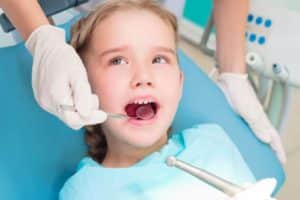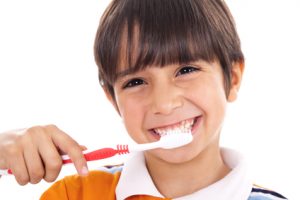How to improve your child’s oral health
Understanding the precautions available to prevent your children from developing dental problems can significantly reduce your child’s risk of dental disease.
Concerning statistics from the most recent Child Dental Health Survey show that the average 6 year old has 2 teeth affected by decay. Furthermore 10% of children this age with the most extensive history of tooth decay in their milk teeth had approximately 8 teeth affected. That’s almost 4 times the national average for this age group.
Therefore, it is now more important than ever for parents to be extra vigilant about improving their children’s oral health.
An important step in children’s dentistry involves introducing children to the dentist from the age of three and getting them familiar with the experience from a young age. This can help going to the dentist later in life a less stressful experience, and creates lifelong habits of good oral hygiene. Getting your kids excited about looking after their teeth can seems like a daunting task. However there are many things you can do to make it easier.
Visit a paediatric dentist
While a general dentist is equipped to give dental care to people of all ages, they have not received specialist training in treating children like a paediatrist has. A paediatric dentist specialises in children’s dentistry and is better equipped to cater for children. They will ensure the experience is as positive as possible and make sure your child is comfortable.

Be vigilant with children’s oral health
Regular dental appointments are important so the paediatric dentist can monitor your child’s teeth, as well as give them a professional clean. However parents still need to remain vigilant at home: Prevention is key when it comes to dental disease.
Assist them and make sure they brush twice a day AND FLOSS EACH NIGHT
Until they reach the age of seven most children don’t have the dexterity needed to properly brush their own teeth. You can still have them give it a go, but make sure you give their teeth a thorough brush yourself or have them help you hold the toothbrush.
You should start cleaning your toddler’s teeth as soon as they come through. This is usually when they are about 6 months old, but can be between 3 and 14 months. For children under 2, it’s best to only use water (no toothpaste) on a small soft toothbrush or even a face washer. Toddlers over 2 can use a child-strength toothpaste.
For healthy teeth and gums, make sure your children brush twice daily – once in the morning and once in the evening. They should brush after food and for a duration of two minutes, in circular, up-and-down and side-to-side motions. Parents should follow this with flossing to prevent cavities in between the teeth.
Always use a soft toothbrush, preferably one that’s appropriate for the child’s age, for example, Stage 4 for a four year old. We recommend electric toothbrushes over manual. All Colgate and Oral B products are suitable for children as long as they are low foam, low mint and low fluoride.
Create positive mindset towards dental health
A reward chart can help get kids more excited about brushing their teeth. Work out what reward is suitable and then create a chart to keep track of their progress. Let your child choose their own toothbrush, something with their favourite character or colour on it. This will make teeth brushing more appealing.
Make it fun
Unfortunately brushing their teeth might not be an activity children find exciting. So make it more fun for them by playing music or a video while they do it. make sure it’s something reserved just for when they brush their teeth. It will distract them from being bored and hopefully even have them looking forward to brushing their teeth.
Get the family involved
Children will be encouraged to brush their teeth if they see the rest of the family doing it too. Children love joining in and it’s a good way to show them that it’s an enjoyable thing to do.

Less sugar – look for healthier alternatives
Trying to restrict the amount of sugar your child consumes can help to keep decay away. Sugar weakens the enamel of your teeth, which makes them vulnerable to decay. When you pack their lunch box make sure to fill it with healthy snacks, like fruit and yogurt, instead of sugary treats.
After consuming any sweet foods your child should be encouraged to either brush their teeth. If they’re not at home, they can chew sugar-free gum as this will help to clean the teeth. Rinsing with water can also make a difference.
Mouthguard during sporting activities
It’s not just dental disease you need to protect your child from, but also injuries caused by external forces. It always a good thing when kids get active, but to protect their teeth make sure to get them a fitted mouthguard to help reduce the risk of dental injury. While accidents happen, you should try to provide as much protection for your children’s little teeth as possible.

